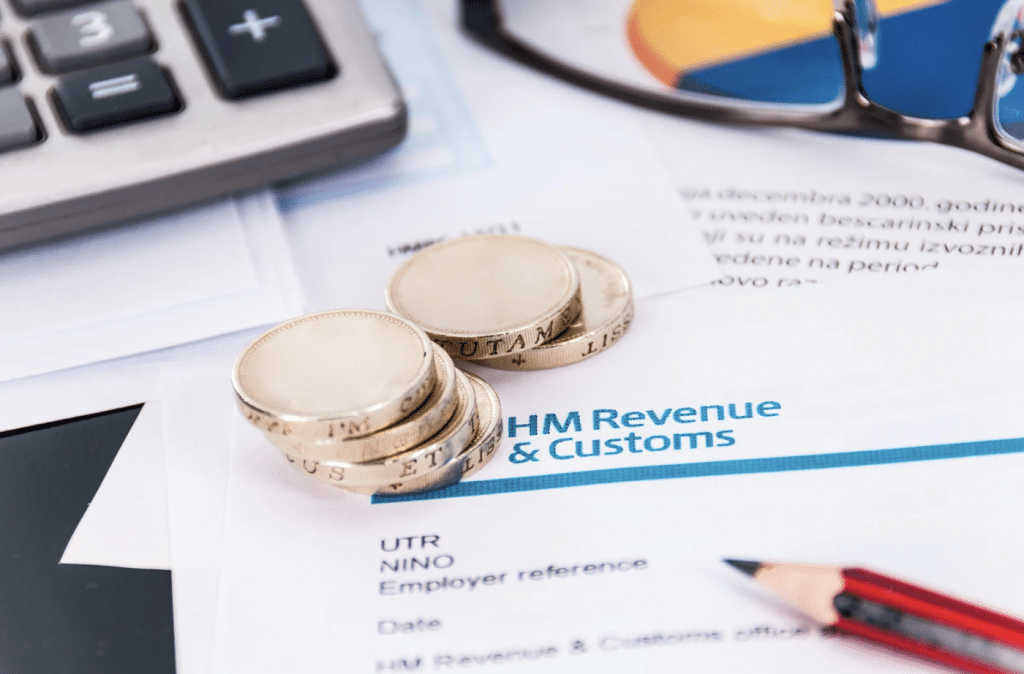With so many options available, it’s easy to feel overwhelmed when planning for retirement—especially if you’re an expat. But understanding the UK pension structure is the first step to making confident, well-informed decisions. In this section, we break down the three main types of UK retirement plans, and explain how they work if you live abroad or are a foreign national living in the UK.
Table of Contents
- Types of UK Pensions
- How Pensions Work for Expats
- Common Challenges with Expat Pensions
- Tax Treatment of Pensions in the UK and Abroad
- Transferring Your UK Pension Abroad
- Should You Keep Your Pension in the UK or Transfer It?
- Upcoming Changes: Inheritance Tax and Pensions from 2027
- Key Questions to Ask Before Deciding
- Best Practices for Managing UK Pensions as an Expat
- Professional Advice and Retirement Planning
Types of UK Pensions
State Pensions
The UK State Pension is a regular payment you can receive from the government once you reach State Pension age and have built up enough qualifying National Insurance contributions.
- You normally need at least 10 qualifying years to get the basic State Pension, and 35 years to get the full amount.
- If you’re a UK expat, you can still receive your state pension abroad in most countries. But whether it’s increased annually (increases linked to earnings, inflation, or a minimum of 2.5%) depends on whether the UK has a reciprocal social security agreement with the country you’re living in.
Workplace Pensions
A workplace pension is a pension your employer arranges for you. Contributions come out of your salary and are often matched or topped up by your employer. There are two main types:
-
Defined contribution schemes: You and your employer pay into your pension pot, and the final amount depends on how much is paid in and how any investments perform.
-
Defined benefit schemes: Also known as final salary or career average pensions, these pay out a guaranteed income based on your salary and years of service.
Personal Pensions
Personal pensions are pensions you arrange yourself—ideal if you’re self-employed or want to save more for retirement on top of your workplace scheme or the state allowance.
These also fall into the defined contribution category. You can:
- Choose your provider (e.g. through a bank, insurer, or investment platform)
- Select how your funds are invested
- Potentially access a Self-Invested Personal Pension (SIPP) if you want more control over your investments
You receive tax relief on your contributions, and like workplace pensions, you can usually take 25% of your pot tax-free at retirement, with the rest drawn as regular income.
Do These Pensions Work the Same for Expats?
Contributions to UK Personal Pensions and Tax Relief
Contributions to UK personal pensions may be eligible for tax relief, depending on your UK tax residency status and level of UK relevant earnings.
- According to HMRC guidance, you can claim tax relief on contributions into registered personal pensions up to 100% of your annual UK earnings, or up to £3,600 gross if your earnings are lower
- Under annual allowance rules, the maximum you can contribute tax-efficiently is generally £60,000 per tax year (2025/26 figures), though this may be tapered for high earners.
Claiming Relief:
-
Relief at source schemes (common in personal and stakeholder pensions) allow basic-rate tax relief (20%) to be added automatically into your pension pot. Higher or additional-rate taxpayers can claim the extra relief via a Self-Assessment tax return
- If your pension scheme operates via net pay, contributions are taken from your salary before tax is calculated, so relief is automatic. Some low earners may receive a top-up from HMRC.
Eligibility Criteria:
- You must be under age 75, and making contributions into a registered UK pension scheme, resident or non-resident but previously UK resident within the past five years.
- You must have relevant UK earnings, typically taxable income such as employment or self-employment income; but if you lack earnings, you may contribute up to £3,600 gross annually under the “non-earner” rule.
For Expatriates and Non‑UK Pension Contributions:
- Some double tax treaties (DTAs) include provisions allowing relief on contributions to foreign pension schemes, via migrant member relief or specific treaty clauses
- This relief is often limited: the overseas scheme must qualify under treaty terms, and in many cases contributions must have begun while UK resident. You must claim relief on your Self-Assessment return; it is not available through automatic schemes .
The core rules of UK pension schemes for expats remain the same in terms of how contributions and benefits are structured—but the tax treatment with regards to access, and growth can change depending on where you live and your residency status.
If you’re a UK expat living abroad:
- You can still contribute to certain personal pensions for up to five tax years after leaving the UK, provided you meet qualifying criteria.
- State Pension entitlements continue to build up if you’re working abroad and paying UK National Insurance voluntarily or through a social security agreement in place between your home country and your new country.
- Taxation of your pension income may vary depending on your residency status and whether your country of residence has a double tax treaty with the UK.
If you’re a foreign national living in the UK:
- You can join UK workplace pension schemes if employed in the UK.
- Contributions to UK personal pensions may qualify for tax relief depending on your UK tax residency.
- When you leave the UK, you may have the option to transfer your pension overseas (e.g. to a QROPS), although this may trigger 25% UK tax charges unless conditions are met.
Common Challenges with Expat Pensions
Living abroad or planning to move can bring incredible freedom—but when it comes to pensions, it can also introduce layers of complexity. From currency shocks to unfamiliar international pension rules, expats often face challenges that aren’t always obvious at first glance. With a little preparation, though, you can stay one step ahead and make confident decisions about your financial future.
Currency Fluctuations and Inflation
If your pension is paid in pounds but you’re spending in a different currency, exchange rate movements can make a big difference to your monthly income. A weakening GBP can quickly erode the value of your pension in real terms, making budgeting more difficult—especially in countries with higher inflation or volatile currencies.
Even if your pension income looks stable on paper, inflation in your new country can reduce your retirement income abroad over time. This is especially important for those living on a fixed income from a UK State or private pension.
To offset this you can consider holding part of your pension in multi-currency investment funds or working with a local adviser to explore inflation-hedged income options.
Cross-border Tax and Reporting Issues
This is one of the most common and misunderstood issues is the tax on UK pensions for expats. Depending on where you live and your residency status, your UK pension income may:
- Be taxed in the UK only
- Be taxed in your country of residence
- Or be taxed in both countries—unless covered by a double tax treaty or subject to unilateral relief.
For example, the UK has treaties with over 130 countries, but they vary widely in how they allocate taxing rights on pensions. Many treaties distinguish between Government pensions and private or employer pensions, so it’s important to read the small print—or work with someone who has.
From 6 April 2025, the abolition of the remittance basis will mean that certain foreign pension incomes will become taxable in the UK even if not brought into the country, creating unexpected liabilities for some expats.
And don’t forget reporting duties: UK residents must declare foreign pension income on their Self Assessment return using the foreign income pages, and tax relief (if any) must be correctly calculated and claimed under treaty or unilateral relief rules.
Portability and Access Risks
Just because you can transfer your UK pension overseas doesn’t always mean it’s the right move. Many expats look at QROPS—Qualifying Recognised Overseas Pension Schemes—as a way to take their pension with them, but there are important caveats to consider. See under the heading ‘Can you transfer your pension abroad’ for more information about moving your pension abroad.

Tax Treatment of Pensions for Expats in the UK and Abroad
Understanding how your pension is taxed is just as important as knowing how it grows. If you’re an expat—whether living in the UK or abroad—the tax treatment of pensions can get complex fast. The rules vary depending on your residency, the type of pension you hold, and where your pension income comes from.
With a little clarity, you can avoid surprise tax bills and structure your retirement income more efficiently.
UK Pension Tax Rules for Non-Residents
If you live outside the UK but receive income from a UK pension scheme, that income is usually still taxable in the UK. This includes:
- UK State Pension
- UK workplace pensions
- UK personal pensions (both defined contribution and defined benefit schemes)
The UK taxes these on the arising basis—meaning they’re taxed in the tax year you receive them, even if the money never enters the UK.
However, if you live in a country that has a double tax treaty with the UK, the treaty may give exclusive taxing rights to your country of residence, or exempt certain pension types (such as Government pensions or lump sums).
Tip: Check the relevant tax treaty (if one exists) before drawing down pension income.
Foreign Pensions for UK-Based Expats
If you’re living in the UK and receiving a foreign pension, that income is generally taxable in the UK, unless a specific exemption applies under a double taxation agreement.
Under the new residence-based regime introduced in Finance Act 2024, the concept of domicile will no longer determine tax treatment for foreign income and gains from 6 April 2025. This includes income from foreign pension schemes. Instead, taxation will depend solely on your UK tax residence status as determined by the Statutory Residence Test (SRT).
From 6 April 2025, all UK residents, regardless of their former domicile status, are be taxed on foreign pension income on the arising basis, subject to any applicable double tax treaty provisions. This means foreign pension income will be taxed in the tax year it arises, even if it is fnot brought into the UK.
It’s important to note that in some countries, domicile still plays a legal role in determining local tax treatment. Therefore, UK-based expats receiving foreign pensions should also consider the treatment of such income under the laws of the source country, especially where domicile rules remain relevant.
Impact of Double Taxation Treaties (DTAs)
The UK has double tax treaties with more than 130 countries. These treaties decide where your pension is taxed—and how to avoid being taxed twice.
Some key points:
- DTAs often distinguish between private pensions and Government pensions (paid for public service)
- Where both countries have taxing rights, foreign tax credit relief is usually available in the UK
- If no treaty exists, you may still be eligible for unilateral relief under UK law
It’s also important to check the withholding tax rates on your pension in the foreign country. If tax was deducted abroad at a higher rate than allowed under the treaty, you’ll need to claim the difference back from the overseas tax authority.
Tip: Always report foreign pensions on the full Self Assessment return, not the short form—and use the Foreign income pages to claim relief.

Can You Transfer Your UK Pension Abroad?
For many expats, transferring a UK pension overseas seems like a smart move—but it’s not always that straightforward. While certain overseas schemes are recognised by HMRC, not all transfers are tax-free, and not all providers offer the same flexibility or protection.
Understanding the rules, charges, and long-term impact is key to making the right decision for your retirement.
QROPS Explained
A QROPS—short for Qualifying Recognised Overseas Pension Scheme—is a type of overseas pension scheme that meets specific conditions set by HMRC.
If your chosen scheme qualifies as a QROPS:
- You may be able to transfer your UK pension without triggering an immediate tax charge
- Your funds will move outside the UK tax net, subject to local rules
- You may gain flexibility on how and when you access your pension income
However, not all QROPS transfers are tax-free. Since 2017, a 25% overseas transfer charge applies in many cases—especially if you or your pension provider are based outside the European Economic Area or outside the country where the QROPS is registered.
Tip: Always check if the overseas scheme is listed on HMRC’s official QROPS list and whether you’ll still be liable to UK tax after the transfer.
Conditions and Risks of Pension Transfers
While a QROPS must meet HMRC’s rules to appear on the official list, that doesn’t automatically mean the transfer is tax-free.
In many cases, a 25% overseas transfer charge still applies—especially if you or your QROPS provider aren’t based in the same country, or if you’re outside the European Economic Area. And if you mistakenly transfer to a scheme that isn’t recognised by HMRC, the penalties can be far steeper—up to 40% or more in unauthorised payment charges.
Even with a compliant QROPS, you’ll need to think carefully about local rules, which may restrict when and how you access your funds. Things can also get tricky if you move again—what worked well in one country may suddenly become inefficient, expensive, or even non-compliant in another.
Unlike UK-based pensions, which are covered by strong regulatory protections like the Financial Services Compensation Scheme, many overseas schemes don’t offer the same security. That’s why it’s so important to get advice from someone who understands both UK pensions and cross-border tax rules—because once you’ve made the transfer, it’s often irreversible.
Key Conditions to Avoid the 25% Overseas Transfer Charge into a QROP
When you leave the UK, you may have the option to transfer your pension overseas—often into what’s known as a QROPS (Qualifying Recognised Overseas Pension Scheme). While this can offer benefits like local currency alignment or access flexibility, it’s not always tax-free.
In many cases, a 25% overseas transfer charge applies unless certain conditions are met.
For example, if you’re living in the same country where the QROPS is based at the time of the transfer, you may avoid the charge.
Similarly, if the scheme is part of your employer’s pension arrangement or is in a country that holds a tax agreement with the UK, this may offer an exemption.
You’ll also need to stay resident in that country for at least five UK tax years following the transfer—moving elsewhere within that time frame can trigger the charge retrospectively.
The receiving pension scheme must also be listed on HMRC’s official QROPS register and meet specific rules set under UK law.
So while overseas transfers can be attractive, it’s vital to check the rules carefully before proceeding, as an unexpected tax hit could significantly reduce your retirement pot.
If none of these conditions are met, a 25% tax charge is applied to the full transfer value under the Finance Act (FA 2004 s244L–244N).
It’s important to understand your UK pension structure and cross-border options early to avoid tax traps later on.
Get regulated advice before transferring any pension—and ask about both tax and long-term suitability in your specific country of residence.
Before making a move, it’s important to understand that transferring your UK pension overseas may result in:
- Loss of UK regulatory protection, such as the FSCS
- Unexpected tax liabilities, especially if you later move again
- Reduced flexibility or access, depending on the local scheme’s rules
If you’re considering transferring to a country with unstable regulation or high local tax on pensions, the risks may outweigh the benefits.
Also, keep in mind that pension transfers are often irreversible. Once the funds have left the UK system, you may not be able to bring them back—or access them on the same terms.
Tip: Get advice from a UK-authorised financial adviser before initiating any transfer. Cross-border tax rules are evolving rapidly, especially post-Brexit.
What If You Move Again After Transferring?
Many expats live in more than one country during retirement. If you’ve transferred your pension to a QROPS in Country A, then move to Country B:
- You might trigger tax liabilities if Country B doesn’t recognise the scheme
- You could lose access to favourable tax treatment
- Your pension scheme may restrict transfers or charge exit penalties
HMRC may also continue to track and tax your pension benefits for five years after the transfer, depending on your residency status.
That’s why pension portability should be part of your decision—not just for where you live now, but where you might live next.
Tip: Think long term. Avoid locking into a scheme that won’t serve you in future destinations.
Should You Keep Your UK Pension or Transfer It?
For expats, one of the biggest decisions is whether to leave your pension in the UK or transfer it overseas. There’s no one-size-fits-all answer—it depends on your residency, future plans, and how your pension will be taxed.
Pros of Keeping Your UK Pension
Staying in a UK scheme may be the safer option for many:
- Your pension stays under UK regulatory protection
- You retain access to the Financial Services Compensation Scheme (FSCS)
- There’s no risk of triggering the 25% overseas transfer charge
- It’s often easier to manage if you still have UK income or tax ties
Pros of Transferring Overseas
A QROPS transfer could make sense if:
- You’re settled long-term in a country with favourable pension tax rules
- The overseas scheme offers better access or flexibility
- Your income and spending are no longer in GBP, reducing currency risk
Just be sure to check that the scheme is listed on HMRC’s official QROPS list and that you meet all residency and reporting conditions.
New IHT Changes from 2027
From 6 April 2027, unused pension funds—such as defined contribution pots—will become part of your estate for Inheritance Tax (IHT). This is a major shift from the current rules, where pensions are typically kept outside the IHT net.
This change may have an immediate effect on estate planning for expats and UK residents alike. Strategies that previously relied on leaving pensions untouched to preserve wealth may now need reviewing. Some may consider withdrawing funds earlier, purchasing annuities, or using gifting strategies—especially where property or illiquid assets are held within pensions.
These changes make it even more important to keep your retirement strategy aligned with the latest tax rules. Your pension deserves expert care. Stay informed, plan ahead, and make decisions with confidence.
Tip: Speak to an adviser who understands both UK and local pension rules—small errors can have lasting effects.
Questions to Ask Before You Decide
- Where will I live long-term?
- What are the tax implications here and in the UK?
- Will I be better off with a UK pension transfer or not?
- Am I giving up any guarantees, benefits, or protections?
Round up: Best Practices for Managing UK Pension Schemes as an Expat
Whether you’re already living abroad or planning your move, your pension shouldn’t be left on autopilot. Making a few smart moves now can protect your long-term income and give you more flexibility in the future. Here’s how to stay on top of your UK pension schemes for expats and build confidence in your retirement strategy.
Regular Reviews and Pension Audits
Just like reviewing your bank statements or insurance policies, it’s important to check in regularly on your pensions. This includes:
- Tracking the performance of your pension funds
- Reviewing beneficiary nominations (especially after life changes like marriage or relocation)
- Making sure your address, residency status, and communication preferences are up to date with your provider
These small checks help you avoid missed payments, outdated assumptions, and unexpected surprises later on.
Schedule a pension review at least once a year, ideally with a financial adviser who understands expat needs.
Choosing Between Keeping or Transferring Your Pension
One of the biggest questions expats face is whether to keep their UK pension where it is, or transfer it overseas.
Staying with a UK provider:
- Keeps your pension within a regulated UK framework
- Retains protections like the Financial Services Compensation Scheme (FSCS)
- May be better for those who return to the UK or maintain UK income/tax ties
Transferring abroad (e.g. to a QROPS):
- Could offer tax or access advantages depending on your new country
- Might simplify currency alignment if you’re no longer using GBP
- Requires careful assessment to avoid tax charges and eligibility issues
This is where UK pension transfer advice is crucial—especially as post-Brexit and post-2025 rule changes have introduced new compliance risks and tax pitfalls.
A good adviser will assess both your current residency and future relocation plans before recommending a transfer.

Professional Advice and Retirement Planning
Expat pensions often sit at the intersection of UK and international tax law, local financial rules, and personal lifestyle goals. That’s why working with a specialist in expat retirement planning can save you time, stress, and money.
A qualified adviser can:
- Assess how your pension will be taxed in both the UK and your new country
- Help structure your income to avoid unnecessary tax
- Identify the best pension products for your risk appetite and long-term goals
- Guide you through pension consolidation or drawdown options
And remember, the right plan doesn’t just save tax—it gives you peace of mind.
Book a consultation with Expat Taxes for clear, expert guidance on how UK pensions and cross-border tax rules apply to you—so you can make confident, well-informed decisions.
DISCLAIMER: The material in this article is for general information purposes only and does not constitute legal or taxation advice. Legal, financial, investment and taxation advice should be sought before acting or refraining from acting. All information and taxation rules are subject to change without notice. Expattaxes.co.uk Limited (hereafter ‘the parties’) accept no liability for any action taken based on the information in this article or any of the articles on this website.
Written by Venita Machnicki, CTA (UK), ATT
Venita is a Chartered Tax Adviser with over 15 years of experience specialising in UK and international tax. She is a trusted expert in cross-border tax matters for globally mobile individuals, expats, and business owners. Venita combines deep technical knowledge with a practical, client-focused approach to help people navigate the complexities of UK tax while living and working overseas.





